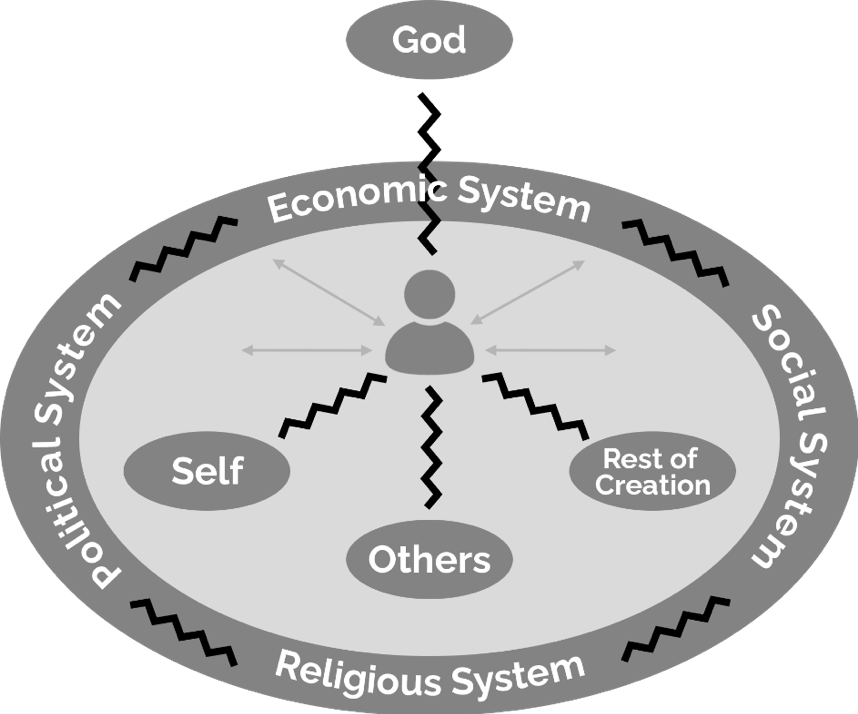Poverty: A Break in Relationships
Analiese (she/her) is a 2023 graduate of University of Tennessee, Knoxville. She deferred her entrance into M.S. Speech Language Pathology program at UTHSC for one year in order to serve at Mountain T.O.P., Inc. She is focused on development and recruitment, and will be traveling to a town near you! Reach out directly to Analise at analiese@mountain-top.org.
I have been a camper for 4 years, worked on Summer Staff for 3, and am now in my 4th month of working full time for Mountain T.O.P. and explaining what we do here is one of the hardest parts. Explaining a job at Mountain T.O.P. is an even more daunting task. Here’s how it normally goes
So you do construction?
No, trust me they do not want me in charge of the construction.
So do you guys do archery, do you go swimming?
I would shoot my own eye out. I also do not want to be in charge of youths going swimming.
What do you do during the year? How do you have a job if it's not the summer? Are they making you live in a camper cabin?
A lot of things, we are open all year, and no Mom they are not making me live in a camper cabin.
This year I am an AmeriCorps member serving at Mountain T.O.P. and my official title is Recruiter and Resource Educator. I wear a lot of different hats bt one of my focuses is volunteer education. My goal is to provide information and resources to our volunteer base to promote education of the complexity of poverty in Appalachia and integrate housing advocacy into Mountain T.O.P. 's mission.
This summer I passed around materials and spoke to our participants about how poverty is a break in relationships, lack of material resources being merely a symptom of a much wider system breakdown. We can all be in poverty, and the relationships that are being broken down can be put in 4 categories. Relationship with God, with ourselves, with others, and with creation (Poverty: Now What We Think?).
Poverty of Relationships
with God would be a lack of belief/commitment to God. Idolatry, placing our security, trust, and belief in false gods.
with ourselves could look like God-complexes: believing we are in control, provide our own security, or don't otherwise need God or low self-esteem and lack of dignity and hope.
with others is self-centeredness, exploitation and abuse of others.
with creation would result in loss of sense of purpose, unhealthy relationship with work or poor stewardship and use of resources.
All of these breakdowns are poverty so we are all in poverty in some way - a poverty of spiritual intimacy, a poverty of being, a poverty of community, and a poverty of stewardship.
This same structure of thought can be applied to our 4 needs. Physical, social, emotional, and spiritual. Mountain T.O.P. has been focusing on what can seem like a new-age concept of ‘social determinants of health’ for almost 50 years. We are not just here for the wheelchair ramp. But for the marginalized, the oppressed and the forgotten. A wheelchair ramp can fix a lot but investing in a community that has been exploited for decades is a lot more.
Our housing mission is only one block in a complex, ever growing jenga tower of components of poverty. If someone has an unsafe house, this is a breakdown of their relationship with creation because their resources are not being adequately utilized. In Appalachia specifically there was a historical and repeated breakdown of the relationship with others because they have been exploited and abused for generations. This is why surface level charity will not alleviate poverty. It takes intentional re-investment in the relationships of Appalachia to begin achieving a flourishing Plateau.
I leave you with some reflection.
“and if you spend yourselves in behalf of the hungry and satisfy the needs of the oppressed, then your light will rise in the darkness, and your night will become like the noonday.” - Isaiah 58:10
What ways are you in poverty?
What mending of those relationships can you do?
What mending of the relationship system around you do you feel called to?
How have you seen broken relationships being mended in your Mountain T.O.P. journey?
Sources:
“Poverty: Now What We Think? Helping Without Hurting: Week 1”. Gospel Link. https://www.gospel.link/helping-without-hurting-poverty.html
Mayo, Nathan. “A Framework for Flourishing: a Synopsis of When Helping Hurts.” True Charity, 5 May 2021. https://www.truecharity.us/helping-without-hurting-a-look-at-when-helping-hurts/

